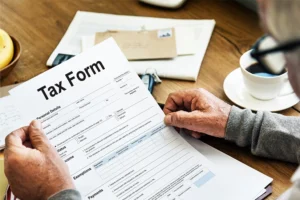Contents
Through the Construction Industry Scheme CIS, subcontractors pay tax and National Insurance contributions (NICs) upfront through CIS deductions—20 per cent for the registered whilst 30 per cent for the unregistered. Overpaid tax deduction resulted in approximately £80 million overall deductions taken each year for subcontractors, which HM Revenue and Customs (HMRC) remedies through CIS tax refunds. A four-year refund may amount to an average of £2,500, which is why subcontractors should claim what they are owed.
This article serves as a guide for people who work in the construction industry, covering all about CIS repayment claim, who are eligible to claim, its requirements, processes, recurrent claiming mistakes amongst subcontractors, and what to expect after making a claim.
What is a CIS Repayment Claim?
The tax year ends every 5 April, and subcontractors will have until next year, 31 January, to submit their self employed tax returns. Construction workers are given tax relief through allowable expenses and personal allowances, which they can offset against their tax liability, but most of the time, these CIS deductions do not show, reflecting overpaid taxes.
Subcontractors will then have to make CIS repayment claims to get these overpaid tax and National Insurance back if they qualify for the CIS claim. Making repayment claims is not usually prevalent amongst those with gross payment status as these taxpayers settle their CIS obligations themselves. They can claim online, by post, or directly to their building society or bank account, according to how they are registered in the CIS framework, which may be as follows:
- Sole Trader
- Partner in Trust
- Limited Company Owner
HMRC can be very stringent about subcontractors claiming CIS refunds, otherwise called CIS tax rebates, and may investigate their tax returns to prove that the latter declares legitimate allowable business expenses, which should be wholly and exclusively incurred for the business and not for personal use, without the intention to get a higher rate of refunds from their CIS deductions. Higher ticket items are considered capital expenses, in which refunds will be done separately by claiming capital allowances.

Allowable expenses for subcontractors, including those in gross payment status, encompass the following:
- Staff expenses (e.g., employment agency fees, subcontracted labour, etc.)
- Professionals’ fees (e.g., accountants, site preparation surveyors, etc.)
- Office or admin fees (e.g., office necessities, stationery, phone, etc.)
- Travel, accommodation, and food during business hours
- Financial payments (e.g., insurance policies, lease payments, etc.)
- Professional subscriptions
- Utility expenses
- Written off debts in turnover and cannot be recovered
- Raw materials and goods
- Maintenance repairs (e.g., carpet fitting, etc.)
- Online advertisements, free samples
Whilst expenses should be strictly for business use, other aspects that hold dual purposes might be considered by HM Revenue and Customs, such as a business van used for the weekdays but for personal use during the weekends. In this case, subcontractors should not include the mileage on weekends when claiming CIS repayments from their CIS deductions.
Reporting inaccurate expenses or CIS deductions is considered illegal and may be subject to CIS penalties. Subcontractors should work this aspect out with tax experts to avoid committing errors and any consequential penalties.
Who Can Make a CIS Repayment Claim?
Sole traders, limited company owners, and those in trust partnerships (or their agents) can claim CIS tax refund for their overpaid tax and National Insurance under the following conditions:
- They have been working at two or more construction sites for the same company in the last four years;
- They kept complete records of their CIS income, National Insurance, and other tax details;
- They used their own vehicle or used public transport to arrive at their workplace;
- They are registered under CIS.
Generally, they can only claim refunds from their CIS deductions after four years, but they can make a claim for the last year when they stop construction work, and their tax history shows they have been consistently responsible for their tax liability.
It’s worth noting that the payment status—with CIS tax deduction or not—determines how likely taxpayers would be overpaying and needing to claim CIS repayments. If their self assessment is in gross payment status, they might not need to as they are not subject to advanced tax and NICs payments in the first place.
What are the Requirements to Make a CIS Repayment Claim?
When subcontractors submit their CIS tax returns, which detail their CIS deductions, they need to keep those documents for at least five years, so they are easily retrievable once CIS claims are due. As much as possible, it’s recommended that they keep e-versions of their receipts, such as through photographs and scanned copies.
They will have to keep proof of their tax deductions, tax deductible expenses, Unique Tax Reference number (UTR), and other records of other forms of income, as all these are included in the self-assessment tax return. To be sure, a good rule of thumb is to keep all their construction work-related expenses, so they can claim as much tax refund for their CIS deductions of tax and National Insurance as possible. The claiming process is easier when they have these documents ready, whether in physical or electronic form.
Subcontractors present different requirements for the following:
- Claiming online or by post
- Claiming direct refunds to building society or bank account
- Claiming refunds from their corporation tax
- Making CIS repayment claims for VAT return
- Claiming for other liabilities
How to Make a CIS Repayment Claim
Whether for personal tax, corporation tax, VAT, National Insurance contributions, or other tax liability, they can offset much tax and claim the refunds through online, post, or directly to their bank or building society accounts via phone call or in person. Some who choose to receive the refund through banks recover Chase account.

Limited companies cannot make CIS repayment claims directly through company tax return, as that option is only directly available on personal tax returns. Doing so will subject them to penalties. They can claim online for their CIS deductions through the company’s monthly payroll scheme instead.
If the limited company uses a CIS agent, the online form will not be available, which will take a different process from when subcontractors make the repayment claim themselves or the construction contractor. For sole traders and partners, they can claim refunds directly through their personal or self-assessment tax returns.
Claiming overpaid CIS deductions for VAT return and other liabilities is best done online. Subcontractors may choose to receive the CIS deductions repayment directly to their bank accounts, but that takes a slower process than online, which is why HMRC highly recommends making claims online than other methods.
Tax refund claim via post is sent to the following address:
- PT Operations North East England
- HM Revenue and Customs
- BX9 1BX
- United Kingdom
Common Mistakes to Avoid
The most common mistakes subcontractors make include the following:
- Inaccurate claim of allowable expenses;
- Claiming before the tax year ends (5 April);
- Limited companies claiming through their corporation tax returns.
Subcontractors should double-check or work with tax professionals to make sure they are declaring the right business expenses, write the right business name, have their unique tax reference number, registration number, VAT registration number, and other reference numbers ready, and claim CIS refunds only after the end of the tax year (6 April and beyond). Claiming before 5 April may result in delays or incorrect payment submission from HMRC.
Limited company subcontractors should separate their corporation tax relief claims from their tax returns via their company’s monthly payroll. Reporting inaccurate expenses and claiming through corporation tax returns may result in penalties, so it’s crucial they keep their records organised through cash flow management software.
Individuals working under self-employment as construction workers must understand how to make Construction Industry Scheme tax repayment claims. Any advance payments might be overpaid, but since the payment summary is reflected in the CIS payment and deduction statements and self assessment tax returns, all that is left is knowing how to properly make the repayment claim.
Timeline and Expectations
If subcontractors filled out the wrong reclaimable amount, they could amend the details online or by post. If they claimed in writing, they could mark it with “revised claim” and inform HMRC of the right amount based on their original claim.
Subcontractors usually wait within 4 to 8 weeks (about two months and even more) for HMRC’s approval and repayments, depending on how accurate the information they provide, as HMRC may ask them for additional proof if the details don’t match their records. If they have any unpaid CIS deductions from the PAYE, the refund will be provided next tax month or quarter for that year, and subcontractors will have to inform HMRC they don’t have to pay anything anymore.
How Legend Financial Can Help
After four years engaging in construction work, subcontractors can claim their overpaid taxes as sole trader, partner of trust, or limited company with their unique taxpayer reference numbers. Sole traders and partners claim directly through their personal separate self assessment returns, whilst limited company subcontractors use the online self employment pages separate from their business tax return. They can claim online, by post, or request to receive the refunds directly to their account.
It’s crucial for subcontractors to make sure they claim legitimate expenses and submit their CIS repayment claim only after every conclusion of the tax year or 5 April. Legend Financial can help in this matter. We handle this aspect almost on a daily basis, so subcontractors have higher chances of approval when they work with us. Reach us today!
References
THE EASY WAY TO CLAIM YOUR CIS REFUND AS A SELF-EMPLOYED SUBCONTRACTOR. (n.d.). Retrieved from Go Simple Tax: https://www.gosimpletax.com/blog/easy-way-claim-cis-refund-self-employed-subcontractor/
CIS – repayment claims for limited company subcontractors. (28 June 2017). Retrieved from CIPP: https://www.cipp.org.uk/resources/news/cisrclcs.html
CIS Tax Refund FAQs. (n.d.). Retrieved from Tax Rebate Services: https://www.taxrebateservices.co.uk/tax-faqs/cis-tax-refund-faqs/
How to Claim CIS Refund as Limited Company? (n.d.). Retrieved from AccoTax: https://accotax.co.uk/how-to-claim-cis-refund-as-limited-company/
How do Subcontractors reclaim CIS Repayments from HMRC? (n.d.). Retrieved from Patterson Hall Accountants: https://www.pattersonhallaccountants.co.uk/cis-repayments/
Construction Industry Scheme: How to claim a CIS tax refund. (n.d.). Retrieved from Tax back: https://www.taxback.co.uk/construction-industry-scheme-claim-cis-tax-refund/
How do I claim back tax under the Construction Industry Scheme (CIS)? (n.d.). Retrieved from Low Incomes Tax Reform Group: https://www.litrg.org.uk/tax-guides/tax-basics/how-do-i-claim-tax-back/how-do-i-claim-back-tax-under-construction-industry
CIS repayments: Top 10 tips. (n.d.). Retrieved from Ross Martin: https://www.rossmartin.co.uk/employers/essential-know-how/1161-cis-repayments-top-10-tips
Claim a refund of Construction Industry Scheme deductions if you’re a limited company or an agent. (20 July 2017). Retrieved from Gov.UK: https://www.gov.uk/guidance/claim-a-refund-of-construction-industry-scheme-deductions-if-youre-a-limited-company












